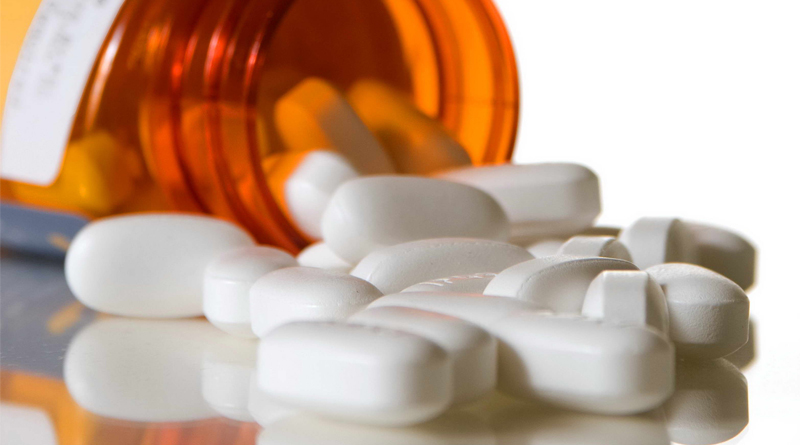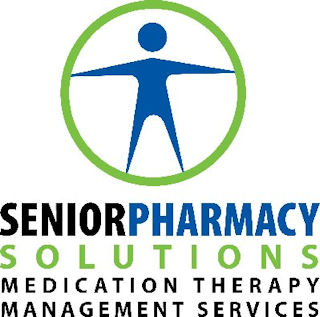
New Year, New Resolutions: Prescription Safety in 2017
By Lynn Harrelson, Pharm. B.S., FASCP
It is an honor to be invited to contribute to the ‘Different Brains’ blog. I practice as a consultant pharmacist; I am not the typical dispensing pharmacist most people depict. I work with patients, their families and healthcare prescribers to support my patients in getting the maximum benefit of medications used while minimizing their potential problems. I help coach and coordinate medication they use. My services as a consultant pharmacist often results in a reduction in strength, frequency and number of doses of medications used. Initially, these innovative services were provided to older patients but now I also provide services to younger patients with diverse neurological or brain issues… Autism, Asperger’s, Dyslexia, ADHD, OCD, depression, Alzheimer’s, etc… same organ, same challenge: optimizing treatments for the individual patient.
Statistically, it has been found that older patients with declining body function (which includes the brain), using only 2 medications has a 10% likelihood of interactions, those using 5 medications, a 50% possibility for interactions and for those using 8 or more medications, a 100% probability their medications will interact, often in a problematic way… same organ, same challenge.
Many individuals reading this are counting their or a loved one’s “medications” and saying no problem… but consider this. If you are counting “medications”, count not only the prescription medications, but also the over-the-counter (non-prescription) medications, vitamins, minerals and other supplements. It rapidly becomes quite easy to hit the “magic 8 number”. These higher numbers are also a problem for individuals of all ages who have challenges with brain or neurological dysfunctions, since many of the medications used to treat such conditions also have side effects that can adversely affect brain function. My goal for my Different Brains’ blog is to support readers in using their medications in a better way.
At the start of the New Year, we make resolutions and traditionally think of changing how or what we do to improve something in our lives. The changes we most often consider involve our health.
This year, I would encourage each reader to consider starting a simple process that has the potential to have a profound impact on your health. This single activity can also make things easier for you, your loved ones, as well as your healthcare providers.
Autism, Asperger’s, Dyslexia, ADHD, OCD, depression, Alzheimer’s, etc… same organ, same challenge: optimizing treatments for the individual patient.
Everyone, young or old, should complete a detailed Health ICE form.
A Health ICE form can be a simple, easy to locate form that provides necessary health information very quickly, should you become involved in an emergency and unable to share the details. In my practice, I have patients who have had accidents and injuries and this form proved to be a life saver. It is also a great reference for non-family caregivers, school, camps, and a reference at healthcare appointments.
The most useful Health ICE form should include minimal personal and health information, name, address, phone number, allergies (penicillin, aspirin, etc.). It is also very important to include special medical conditions (diabetes, seizures, wears contacts, pacemaker, prosthesis, etc.).
It is also critically important to include an up-to-date listing of all medications and how they are used. Also, note the identifying codes of each medication, the numbers or letters marked on the tablets/capsules. Since many medications are generic and may look similar, the identifying marks can make it easier for them to be identified and verified. As mentioned above, it is also very important to include any over-the-counter (non-prescription) medications, vitamins, minerals or herbal supplements that may be used routinely or as needed.
The names and phone numbers of physicians and any pharmacy providing your health care should also be included on the Health ICE. You may also want to include insurance (health and drug) information. Always date the Health ICE and if changes are made, include the updates and new date. Change the Health ICE when any new “medication” is started or stopped. Many “medications” change in the hospital, ER, etc. so be sure to update the Health ICE. Always take your updated Health ICE to your healthcare appointments-doctors, pharmacists, labs or when you may be hospitalized.
Keep copies in several places. I suggest prominently posting a copy of your Health ICE on the refrigerator. Place the completed form in an envelope with your name and Health ICE written on it. Emergency responders will usually check the refrigerator for the Health ICE and your health information is kept more private inside an envelope. A copy in your purse or wallet gives you easy reference when you visit your doctor or pharmacist. Others who would also benefit are your children and other close friends who may be asked for this type of information in case of a medical emergency. Some health issues or concerns may be more quickly resolved by healthcare professionals if they can consider all the “medications” being used.
Make your new year’s resolution to start and keep your Health ICE up-to-date. Include important changes and date the document when it is updated. Your refrigerator and purse/wallet copies should always be accurate.
This vital life-saving information can be gathered on any type of document, but an easy to use Health ICE form can be downloaded from my website, www.SeniorPharmacySolutions.com.
Make the coming year healthier.
 Lynn Harrelson, Pharm. B.S., FASCP
Lynn Harrelson, Pharm. B.S., FASCP
Senior Pharmacy Solutions Medication Therapy Management Services
www.SeniorPharmacySolutions.com
Lynn Harrelson, a 1973 graduate of the University of Kentucky College of Pharmacy received the national 2012 Excellence in Innovation award as recognition for her pioneering eHOP concept, enhanced Healthcare Outcomes Program. The Ohio Valley Appalachia Regional Geriatric Education Center also has recognized her comprehensive medication management services as a best practice model. Throughout her career, Ms. Harrelson has held various positions where she developed and implemented innovative patient-centered programs. Practicing as a geriatric integrative clinical pharmacist in various practice settings, her services have supported improved health and conserved resources by avoiding medication related problems and their associated costs. The focus of her practice has been senior patients and other others using multiple medications.
Today, Ms. Harrelson practices as a Senior Care Pharmacist. She serves as community resource for pharmacy related issues for senior and those using multiple medications and has penned articles for several publications. She supports Louisville’s Healthy Home Town Initiatives with her presentations throughout the greater Louisville area, provides presentations at healthcare related meetings and pens articles for publications throughout the United States including her eNewsletter, the Stay Well Tablet as well as providing support for questions on several national websites.
Her innovative Senior Pharmacy Solutions Medication Therapy Management Services have been instrumental in helping seniors and other taking multiple medications use them more wisely, improving their overall well-being and supporting their continued independence.
To learn more about how medication management services can help you, please visit my website www.SeniorPharmacySolutions.com for information and a medication self-assessment and forms.
For more information, e-mail: lharrelson@seniorpharmacysolutions.onmicrosoft.com




